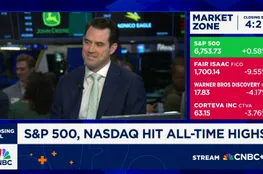Tesla deserves credit for popularizing electric vehicles (EVs). While EVs existed before Elon Musk took the helm, Tesla made them stylish and desirable. Consumers also appreciated the eco-friendly nature of these vehicles. As a result, Tesla shares have skyrocketed since its 2010 initial public offering. However, Tesla stock has plummeted 47% from its peak in late 2021, seemingly stagnating.
What caused this downturn? The reality of battery-powered vehicles is setting in. These cars aren't as practical as initially hoped, and Tesla shares weren't priced for this adverse development. Waning interest in EVs is evident. According to a recent survey by the American Automobile Association (AAA), 63% of U.S. drivers are unlikely to purchase a fully electric vehicle in the foreseeable future, up from 53% in 2023.
Conversely, the percentage of drivers likely to buy an EV dropped from 23% last year to just 18% for 2024. This shift in sentiment continues a trend observed a year earlier. The main reasons for declining interest aren't surprising—consumers are concerned about limited driving range and the challenge of quickly recharging batteries. The above-average cost of EVs is another deterrent.
Tesla's historically high stock premium is under pressure. But don't misinterpret the signal; the EV industry isn't doomed. The U.S. electric vehicle market's unit sales grew by 52% last year, and the International Energy Administration predicts a 20% increase in EV sales within the U.S. this year. The EV market will undoubtedly expand in the future, and Tesla remains a leading name.
Nonetheless, Tesla's shares were historically priced high because of the company's supposed market dominance and strong brand power. Both of these advantages are fading as the downsides of EVs become clear and real competition emerges. Investors are still grappling with finding a new normal for Tesla's stock.
























